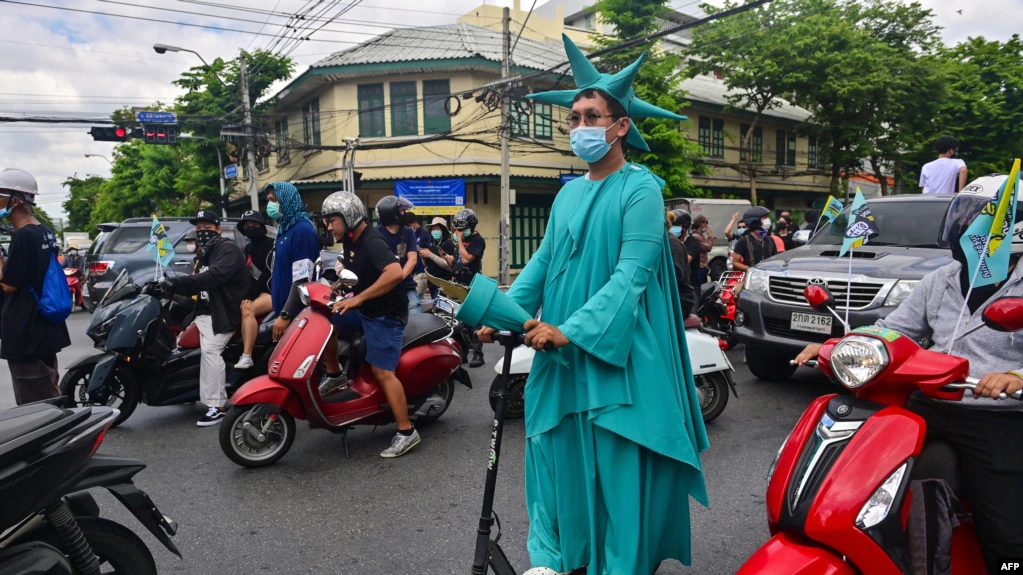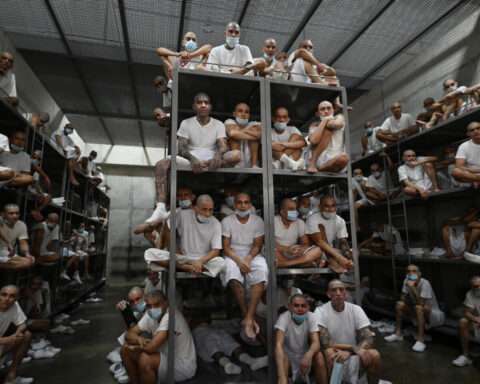When the leaders of more than 100 countries gather virtually in a Summit for Democracy sponsored by the Biden administration next week, groups focused on human rights and civil society say they want to see concrete commitments to push back against rising authoritarianism, as well as an admission by the United States that it has work to do in order to shore up its own democratic institutions.
According to the State Department, the summit on December 9-10 is meant to focus on three things: defending against authoritarianism, addressing and fighting corruption, and promoting respect for human rights.
The gathering is part of an effort to reassert the United States’ role on the global stage as a leader of Democratic nations — echoing President Joe Biden’s assertion that “America is back” after four years of the Donald Trump administration, in which the country largely stepped away from an international leadership role.
The Biden administration has been working to position the United States as a buffer between the democratic nations and the increasingly aggressive authoritarian governments in the world, particularly China and Russia.
However, the summit comes at a time when democratic institutions in the United States are under assault and is complicated by a guest list that includes countries that human rights groups have identified as trending toward authoritarianism, including India, the Philippines and Poland.
‘Democratic backsliding is a fact’
“The damage that has been done to democracy over the last 10 years, but particularly the last five years, has been felt in every region of the world. Democratic backsliding is a fact,” Helena Hofbauer Balmori, international program director for civic engagement and government at the Ford Foundation, a philanthropic organization that seeks to promote social justice, told VOA.
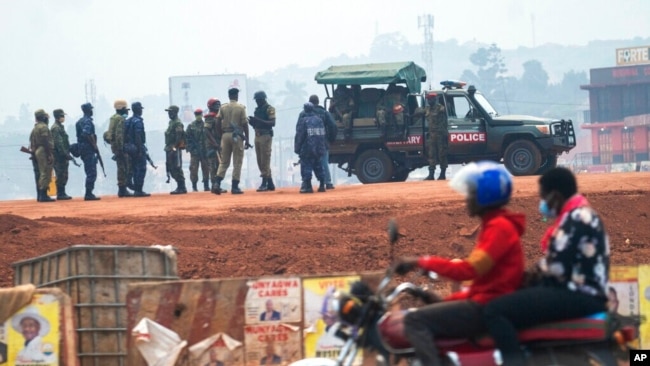
Among other things, she said that the summit must address what she called the “closing of civic space.” The summit, she said, must produce “a strong statement regarding democratic values and practices, and the basic rights that come with it, such as the rights to the freedom of speech, freedom of association and freedom of assembly that are essential for civil society to play a strong role within any government.”
“Electoral democracy is, unfortunately, not enough,” Hofbauer Balmori said. “We need to create the spaces where citizens can play a role and engage and help contribute to the solution of complex problems.”
Rights defenders under strain
In advance of the summit, the nonprofit democracy advocacy organization Freedom House issued freedom “scorecards” for the various countries participating in the event, highlighting the fact that many of them fall significantly short in terms of respecting the rights and freedoms of their own citizens.
“We’d like to see a very clear articulation that governments are willing to face the challenges that they have at home and own that as part of their process as democracies,” Nicole Bibbins Sedaca, executive vice president of Freedom House, told VOA.
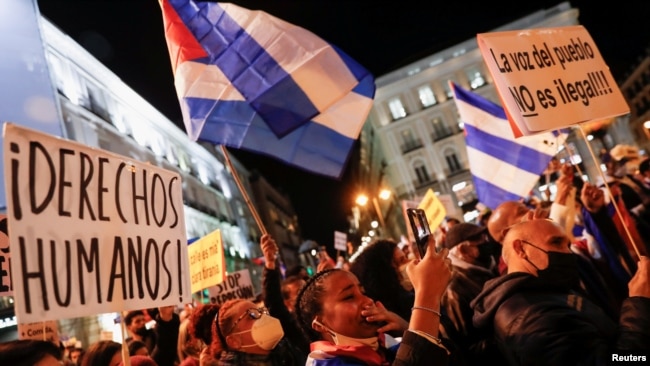
She said that her organization would like to see the participants in the summit come together in a statement of support for “human rights defenders” around the world who, she said, are “under tremendous strain.”
“These are journalists, activists, people who run human rights [nongovernmental organizations], women’s groups, religious leaders, trying to push for universal human rights in their countries,” she said. “They are being imprisoned, they are being arrested, harassed and in some cases killed by authoritarian regimes.”
Additionally, she said that the world’s democracies should come together to condemn the increasingly common practice of “transnational repression,” by which authoritarian governments reach across their own borders to silence activists in other countries. She cited the alleged involvement of Saudi Arabia in the assassination of journalist Jamal Khashoggi in Turkey as an example.
Complicated example
That the United States should be convening a summit on democracy strikes some observers as ironic, given that outside organizations, including the Economist Intelligence Unit and the Stockholm-based International Institute for Democracy and Electoral Assistance (IDEA), have recently noted the country’s declining commitment to democratic values.
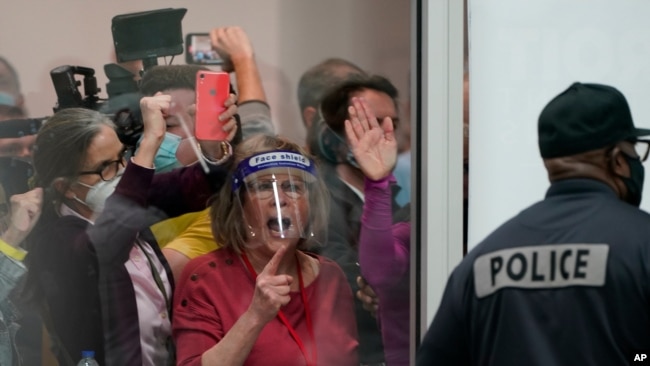
Citing restrictive voting rules, gerrymandered voting districts that favor one party over another, and the persistent claim by some members of the Republican Party, with no evidence, that the most recent presidential election was illegitimate, IDEA this month added the U.S. to its list of “backsliding democracies.”
“The idea of the United States convening the world’s democracies to talk about democracy raises the question of whether the United States should lead on something like that,” Eric Bjorklund, president of Democracy International, a group that promotes government accountability and free, legitimate elections, told VOA. “Because we now have a situation where a substantial part of one of our political parties doesn’t appear to believe in democracy and is willing to try to overturn elections.”
More than words
A common refrain among human rights organizations and civil society groups was the hope that the summit will do more than simply offer leaders the opportunity to speak in favor of democratic values without holding them accountable for actually implementing them.
“We think that the summit needs to be a place of honesty, humility and true commitment to working through the issues, the human rights issues that are faced by countries around the world, including the United States of America,” Joanne Lin, national director for advocacy and government relations at Amnesty International USA, told VOA.
“It’s a question of whether or not the summit is actually going to be the launching point for meaningful multilateral engagement and challenge or whether it’s going to be more of a one-off event that convenes governments virtually but doesn’t actually have meaningful accountability afterwards,” she said.
Hofbauer Balmori of the Ford Foundation agreed: “The big challenge is to actually come out with some mechanisms that make it possible to hold governments to account for their commitments, and to make sure that in these mechanisms, you have countries, governments and civil society who can help to push for the best aspiration.”


